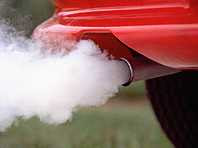 Singapore is having another cleanliness drive, particularly litter in the HDB estates and the Government has formed a workgroup to look into dirty habits in the heartland. In reality, it's a simple issue with well understood themes:
Singapore is having another cleanliness drive, particularly litter in the HDB estates and the Government has formed a workgroup to look into dirty habits in the heartland. In reality, it's a simple issue with well understood themes:
Dense HDB living with small individual and large public space reduces personal responsibility. People who in past times would have swept their yard daily now just leave the corridor to be jet-washed by the council.
Littering is perceived as victimless and unpunishable. People who throw tissues and Q-tips out of bathroom windows are never going to be caught. It's the same spots on the void deck apron and under some kitchen windows that are littered; it's patently a minority at fault.
Same with smokers who as a global group seem to be unconcerned that cigarette butts are not biodegradable and, yes, I can see them in the bushes, drains, grass, etc. There's a chap opposite me who smokes at the window (so as not to befoul the flat); he'll stand there, smoking and spitting then flick the butt down onto the void deck apron. Since he stands in exactly the same spot each time, the ledge below his window has a large grey stain from the flicked ash. No one stops him.
The communal letterboxes at the void deck are strewn with junk mail leaflets; I don't blame residents, it's hard to pull out the contents without scattering these 2 x 3" scraps and few bother to stoop down to pick up junk mail. The authorities could stop this in an instant by banning private marketing flyers just as private condos do.
Setting fires for spiritual purposes is passively condoned by the authorities. The daily piles of ash, burnt walls, blobs of wax, burnt joss sticks and smoke continue despite the supplied braziers mere yards away.
Dog walkers? I don't think I've ever seen one with a poop bag. People just know not to walk on grass verges.
The ST article also mentions foreign workers which is low blow; numerically it's a local problem and the lack of enforcement against local recidivists makes this sound astonishingly patronising:
"They do not know that this is an offence here. Therefore, the town council staff and grassroots members have to give them advice. We need some time to educate them."
Apparently our local council is making an extra effort and just today we received a flyer from the local MP in this very topic:
"CLEANLINESS IN HOUSING ESTATES
1. If we look around our estates in mid-morning, by and large, they are very clean. But this doesn't remain for long and by the afternoon littering creeps in. Bits and pieces of paper are strewn from the HDB void decks to the parks and streets in private estates. By night fall it gets worse. Littering has become a persistent problem. Not only is it unsightly, it encourages breeding of pests like mosquitoes, which transmit diseases like malaria and dengue.
2. The National Environment Agency will extend litter enforcement from HDB town centres to the housing estates such as lift lobbies, void decks and letter box areas from April 2008. The first phase will involve a select group of constituencies. Further phrases will be introduced pending a review by NEA after the first three months of operation.
3. Keeping our estates clean is a shared responsibility. It rests with YOU and US. We are ultimately the ones who either make our estates clean or we destroy this beauty with litter everywhere. Between the two, I think your choice is obvious. You want to keep the surrounding areas clean. So let's make a committed collective effort and STOP littering and throwing unwanted receptacles around our estates.
Thank you for your cooperation.
Er LEE BEE WAH
MP for Ang Mo Kio GRC"
Note that the focus is on public health (discarded plastic bags & drink cups may collect water & breed mozzies), not civic pride or aesthetics.
Nothing will change because the daily clean up by the council is an environmental deus ex machina. No matter what mess is created, the faithful council cleaners will be out before 6am restoring order; people do not need to take any personal responsibility. The article confirms this with evidence from the Cleanest Estate awards:
"Yuhua Village Market and Food Centre at Jurong East Street 24 - one of the winning food centres - had relied heavily on stallholder and town council help to keep its premises spotless"
I wouldn't say Singapore is especially blighted by littering; Hong Kong & Malaysia are worse. But Singapore invests heavily in cleaning up and it would enhance a sense of natural justice if some of the above niggles were taken seriously instead of workgroups and photo-ops of MPs jet washing pavements.
 Known as the East Coast, it's actually the South Coast stretching eastward from the CBD (Central Business District) pretty much from the fringe of the central area (where the Singapore Flyer is) all the way out to the end of Singapore, to where Changi airport is. That whole stretch is mostly residential with some high technology, entertainment and a red-light district (apparently) thrown in. The main claim to fame is that there is a beach; a thin strip of gritty sand between the grey/brown murk of the straits between Singapore and Indonesia where the cargo ships anchor waiting for their turn in port.
Known as the East Coast, it's actually the South Coast stretching eastward from the CBD (Central Business District) pretty much from the fringe of the central area (where the Singapore Flyer is) all the way out to the end of Singapore, to where Changi airport is. That whole stretch is mostly residential with some high technology, entertainment and a red-light district (apparently) thrown in. The main claim to fame is that there is a beach; a thin strip of gritty sand between the grey/brown murk of the straits between Singapore and Indonesia where the cargo ships anchor waiting for their turn in port.
 Singapore has no natural energy reserves and relies on imports of petrol and water from Malaysia, and natural gas from Indonesia. Both have notable stories this week.
Singapore has no natural energy reserves and relies on imports of petrol and water from Malaysia, and natural gas from Indonesia. Both have notable stories this week. Singapore is having another cleanliness drive, particularly litter in the HDB estates and the Government has formed a
Singapore is having another cleanliness drive, particularly litter in the HDB estates and the Government has formed a 




